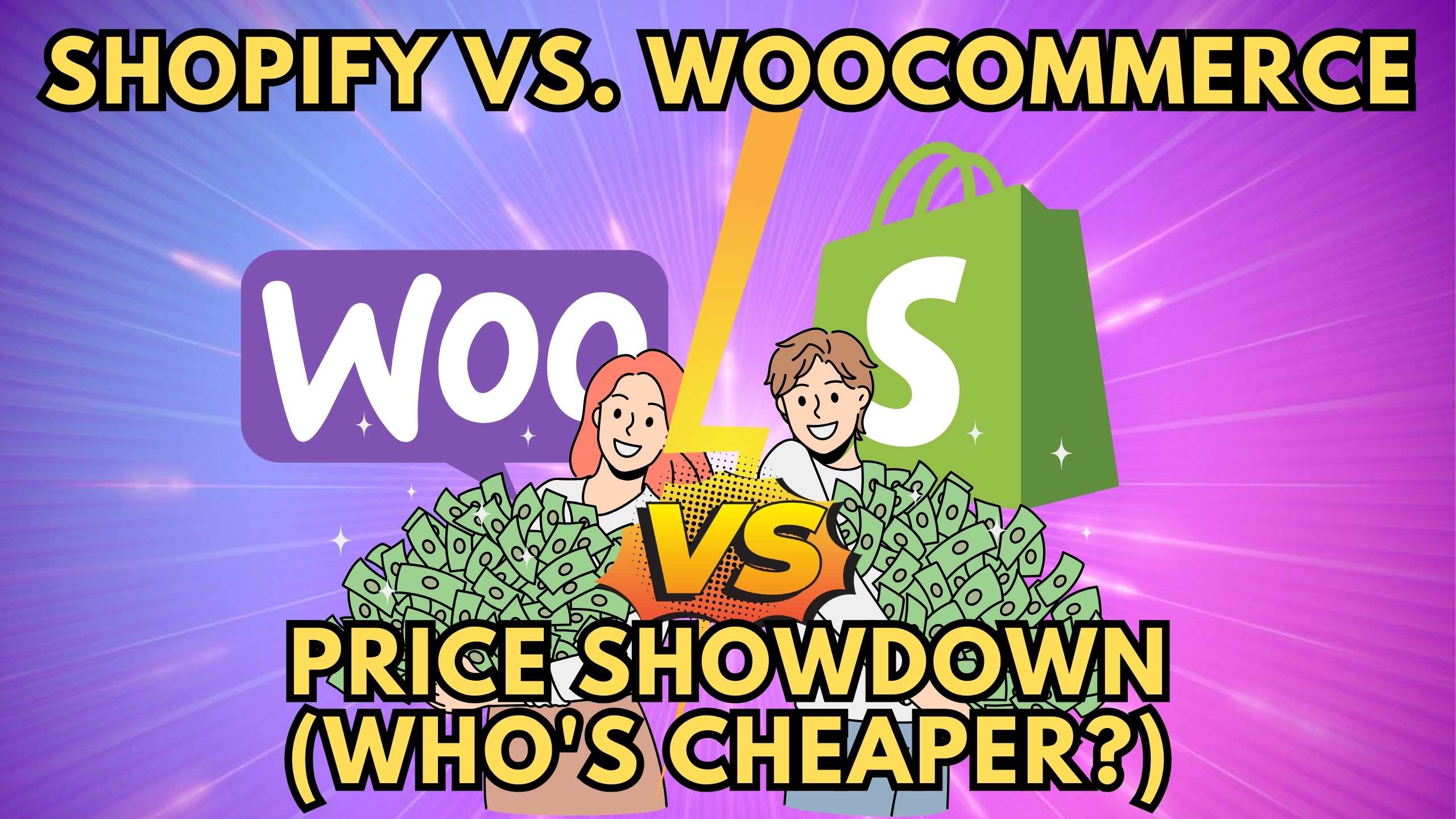Shopify vs. WooCommerce: Price Showdown (Who’s Cheaper?)


Shopify vs. WooCommerce: Price Showdown (Who’s Cheaper?)
Shopify and WooCommerce are two of the most popular ecommerce platforms used by online businesses. A key consideration when choosing between them is cost. In this post, we’ll compare Shopify and WooCommerce pricing to help you determine which offers better value.
Shopify Pricing Plans
Shopify offers four pricing plans:
- Basic Shopify: $25/month
- Shopify: $65/month
- Advanced Shopify: $399/month
- Shopify Plus: Custom pricing
The main differences between the plans are the fees, features, and support offered at each level. Transaction fees decrease from 2.9% + $0.30 down to 0.5% + $0.00 as you move up through the tiers. Key features like an online store, unlimited products, marketing tools, and abandoned cart recovery are included across all paid Shopify plans. As you upgrade, you get access to advanced report building, more staff accounts, and real-time carrier shipping.
WooCommerce Pricing
WooCommerce is free to download and install. However, you’ll need to factor in costs for web hosting, themes, extensions, and third-party services.
Hosting
You’ll need WordPress web hosting to run WooCommerce. Prices typically range from $5 to $100+ per month depending on your traffic needs.
Themes
Paid WooCommerce themes offer more customization options and better support. They range from around $59 to $249 for a single site license.
Extensions & Services
To enhance functionality, you’ll likely need some extensions e.g. for shipping, tax, and payment processing. These range from free to hundreds of dollars. You may also require third-party services like email marketing and accounting software.
When combined, estimates for an entry-level WooCommerce store can easily total over $100 monthly when including hosting, a theme, and some key extensions. Costs scale up from there depending on traffic volumes and feature needs.
Shopify vs WooCommerce: The Cheaper Option?
Shopify tends to work out cheaper than WooCommerce for most small ecommerce stores. At $29-79 per month, it provides an all-in-one hosted platform with unlimited bandwidth and built-in features. You avoid the ongoing costs of patch management, hosting, and integrating various services and extensions.
However, WooCommerce offers more flexibility and control, albeit at an increased time and monetary cost. It can scale more affordably for larger stores once traffic volumes offset the higher initial overhead. But it requires more technical expertise to setup and manage long-term.
So in summary:
- Shopify is cheaper for most small stores.
- WooCommerce offers greater customization potential for larger budgets.
- Consider your budget, timeline, features needed & technical capabilities.
Relevant SaaS Products
Here are some relevant SaaS tools that can help enhance your ecommerce store:
- Privy – popups, email capture, and messaging to boost sales
- Smile.io – loyalty program and rewards app
- Judge.me – generate product reviews and boost SEO
- 6sense– ecommerce analytics and business intelligence
- Zipify Pages – landing page builder with built-in conversion tools
Conclusion
In determining whether Shopify or WooCommerce offers better value, you need to weigh factors like your budget, timeline, feature needs and technical capabilities. For most small stores, Shopify provides an easier all-in-one solution at a more affordable price point. But WooCommerce can scale more cost-effectively for bigger merchants willing to invest more time and effort.
Carefully assess your specific store’s needs and resources before deciding which platform is the cheaper and better fit. Supplementing your chosen ecommerce platform with complementary SaaS tools can further enhance functionality and maximize success.
Boost Sales and Save on Business Tools
Subscribed.fyi provides the ultimate SaaS subscription management platform to track expenses, find deals and monitor your subscriptions. Sign up now to start saving on 100+ business tools. Unlock member-only deals and make smarter decisions to boost your bottom line.
Relevant Links








